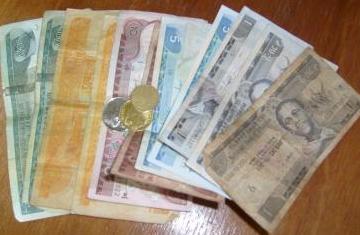
Above: Ethiopia’s Central Bank announced Wednesday that
the birr has been devalued from roughly 13 birr to the dollar
to nearly 16 ½ birr, a one-day drop of about 17 percent. AE
Voice of America
Peter Heinlein | Addis Ababa
Ethiopia has sharply devalued its currency – the birr – in a bid to boost economic growth. The move was welcomed by economists, though it may have the side effect of fueling inflation.
Ethiopia’s Central Bank announced Wednesday that the birr has been devalued from roughly 13 ½ birr to the dollar to nearly 16 ½ birr, a one-day drop of about 17 percent. The rate was posted on the bank’s website. Officials were not immediately available to comment.
Action Gets ‘Thumbs Up’ – With Some Reservations
The International Monetary Fund representative in Addis Ababa, Sukhwinder Singh Toor, welcomed the move, saying it would help to bolster the competitiveness of Ethiopia’s struggling economy.
Analysts said the devaluation should improve the Horn of Africa nation’s trade deficit. Figures for fiscal year 2010 show a $7 billion deficit, based on $8.7 billion in imports and $1.7 billion dollars in exports. The trade deficit comprises about 30 percent of Ethiopia’s Gross Domestic Product of about $23 billion a year.
But Tewodros Mekonnen, a researcher in the Macroeconomic division of the Ethiopian Economics Association, said the devaluation may not have the desired effect immediately because imports are mostly essential goods, such a food and fuel, while exports are agricultural items.
“In order to reduce your trade deficit, your import and export needs to respond to the exchange rate devaluation, but at the moment imports are too essential to reduce it, so imports may not respond as much,” said Mekonnen. “Also, exports may not respond as much because you cannot increase your agricultural exports just because you have the advantage of the exchange rate devaluation.”
Read more and listen to the report at VOA.com.

























